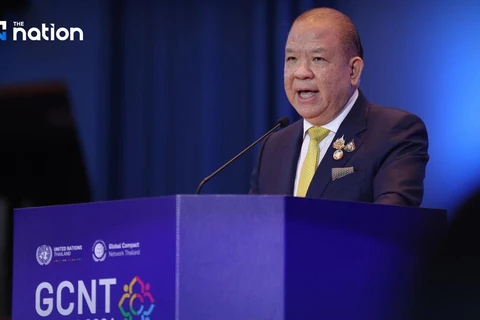Bangkok (VNA) – Thailand has considered a proposal to increase value-added tax (VAT), while reducing corporate and personal income tax rates to strengthen state revenue, drive national development, enhance competitiveness and address domestic disparities, according to Finance Minister Pichai Chunhavajira.
According to Pichai, the Organisation for Economic Cooperation and Development (OECD) has introduced guidelines stating that everyone engaged in business should contribute by paying a minimum 15% corporate income tax. The country’s current corporate income tax rate is 20%, significantly higher than the OECD’s minimum tax rate.
The challenge is how to reduce it to 15% to remain competitive globally, he said.
Regarding personal income tax, Pichai said there is fierce competition to attract skilled workers. Many countries have reduced their tax rates, while Thailand still collects a maximum of 35% from top earners.
However, he noted that Thailand’s personal income tax base remains low, while the consumption tax base is relatively high. This base needs to be adjusted.
Regarding the objectives of national monetary and fiscal policy, Pichai said the monetary policy must support the private sector and lower costs for residents, while the fiscal policy should focus on increasing revenue to address social inequality and drive economic growth.
He stressed the government’s priority is to support structural reforms. Monetary policy, meanwhile, must encourage investment by keeping interest rates low to reduce costs.
The country’s public debt has risen from 4.8 trillion USD nine years ago to 12 trillion USD currently, however, the minister emphasised that debt levels are less critical than the ability to repay them, and economic growth allows more flexible fiscal policies./.






















